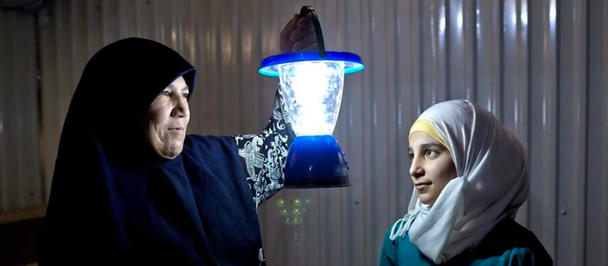A conversation on women's roles in mental health and psychosocial support (MHPSS) for peacebuilding
Peacebuilding by women, for women
March 22, 2023
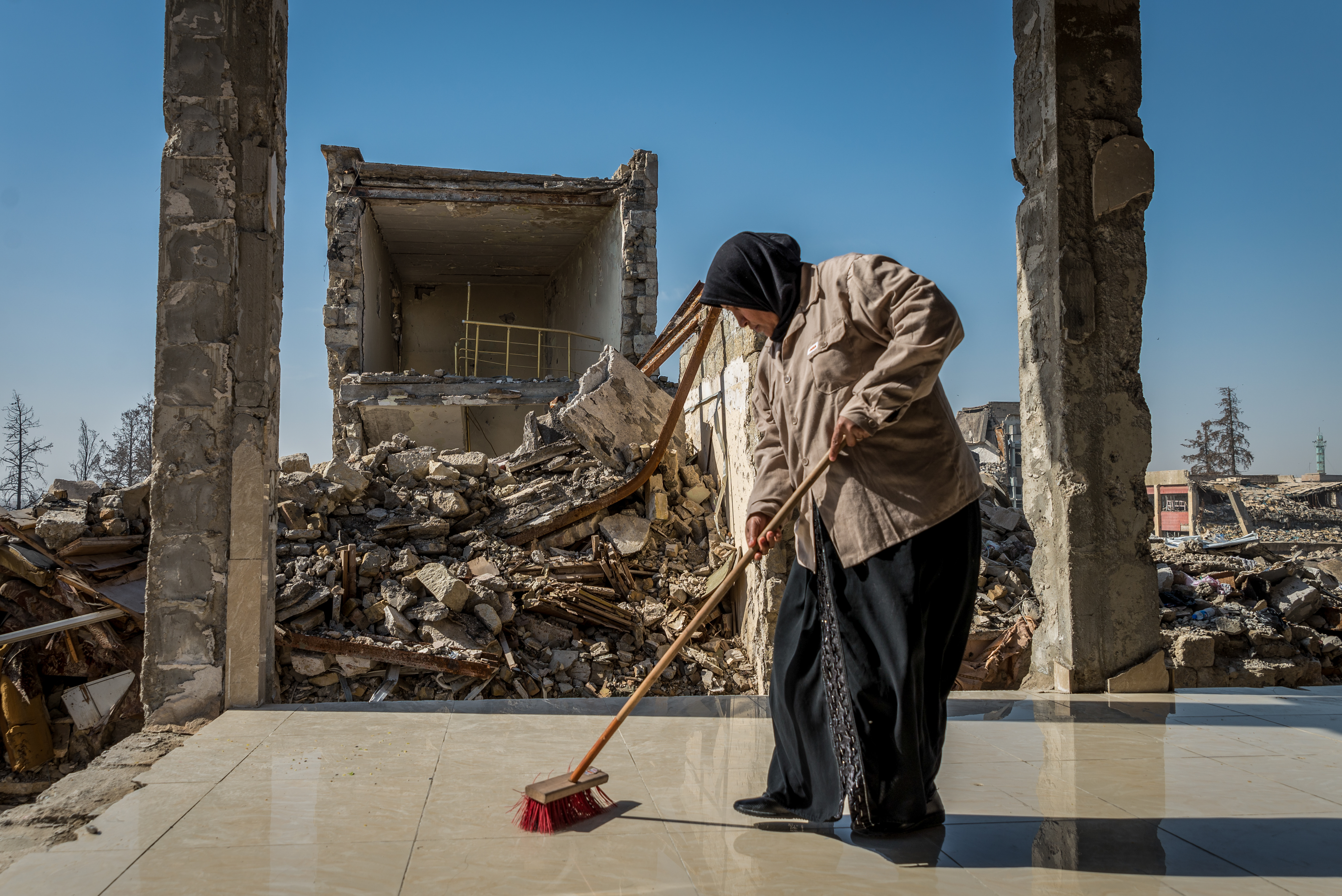
Violence scars on more than just buildings and infrastructure. In Iraq and other post-conflict countries, UNDP works with women leaders, healthcare workers and peace builders to equip women with the tools and knowledge to address trauma.
While crisis and conflict increase both men’s and women’s exposure to violence, women disproportionally experience sexual violence. Sometimes, conflict also leaves them as the sole breadwinners for the entire family. The trauma that results often remains after the signature of a peace agreement, and addressing it is essential for the recovery of communities. In post-conflict countries like Iraq, UNDP works with women leaders, healthcare workers, and peace builders to equip women with the tools and knowledge to address trauma - individual or collective.
The series “Settled Minds, Settled Lives: Building resilience through #InnerPeacebuilding” aims to unpack the principles outlined in UNDP’s Guidance Note on Integrating Mental Health and Psychosocial Support (MHPSS) into Peacebuilding. In this episode, we explore the role of women and MHPSS in peacebuilding - providing insight on the importance of addressing women’s mental health, and giving voice to women MHPSS providers.
We interview experts in the domain: Ms. Stacey Schamber, Clinical Social Worker and Senior Programme Officer with the International Civil Society Action Network (ICAN), and Ms. Nadia Alawamleh, Team Leader, Social Cohesion Programme at UNDP Iraq.
They both make a case for the improvement of women’s roles in peacebuilding interventions - and in particular in the ones involving mental health and psychosocial support. Based on their experience, they highlight their successes and impact, as well as the challenges they have faced. But as one of the experts, Ms. Nadia Alawamleh, stresses, there is no one-size-fits-all approach to integrating MHPSS into peacebuilding: ‘approaches to MHPSS must be tailored to each context.'
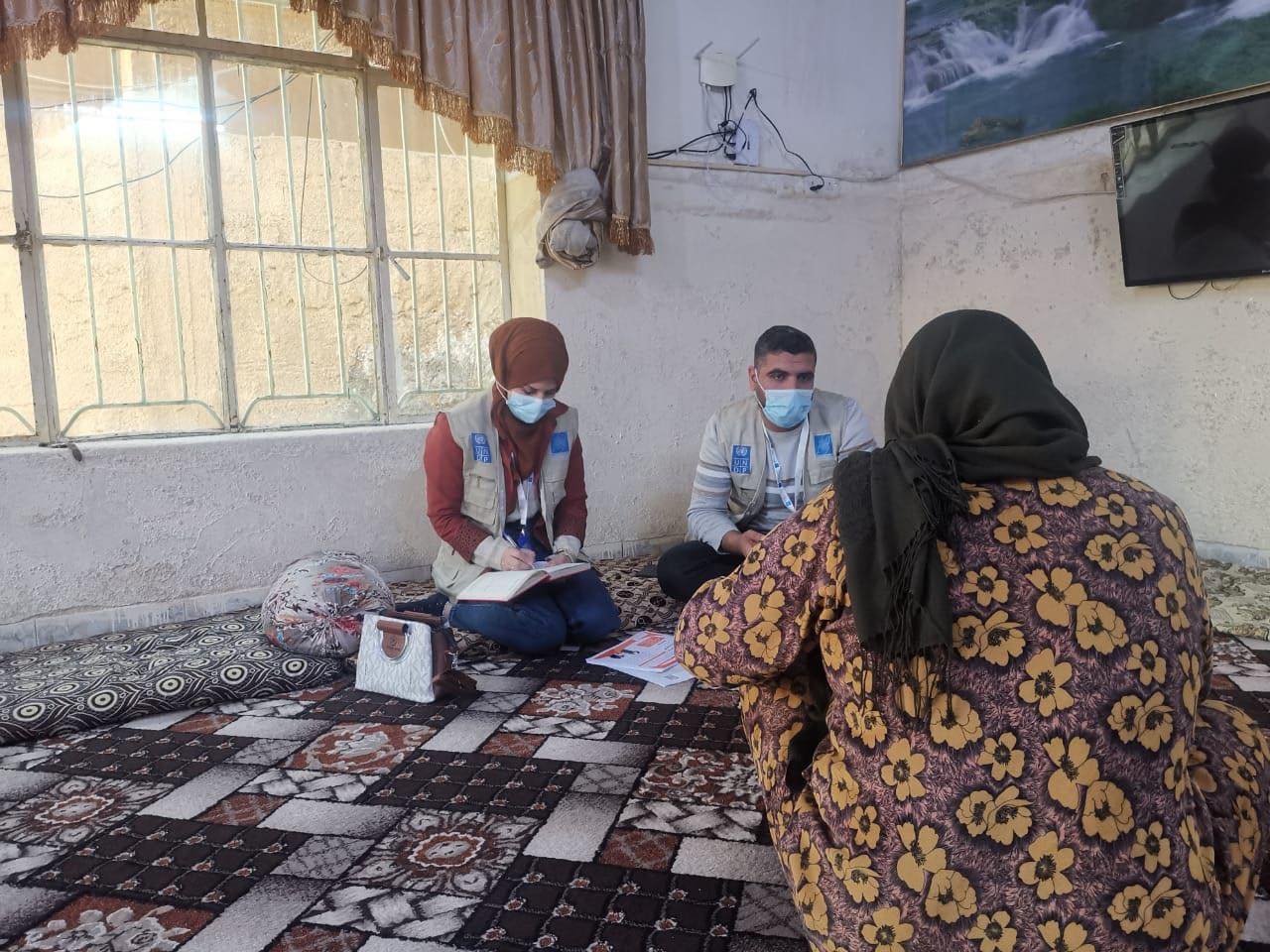
Mental health professionals from a UNDP-supported MHPSS programme interview a woman in Iraq.
It is often said that MHPSS delivery should be gender-responsive and that mainstreaming gender equality in peacebuilding is essential. Can you explain what this means to you?
For Stacey Schamber, Clinical Social Worker and Senior Programme Officer with ICAN, ‘conflict affects women, men, girls, and boys differently, and has an impact on gender identity and roles'. She explains that ’gender mainstreaming and analysis ensure that peacebuilding programmes reflect a local understanding of gender roles, and encourage the equal participation of both men and women in the peace process’.
She highlights that to develop that understanding, one should follow the lead of local women-led peacebuilding organizations: ‘they have a deep knowledge of their own local and cultural context. This is why peace processes must always be inclusive of women peacebuilders: they are necessary for sustained peace and security.’’
Ms. Schamber gave the example of Lebanon, where ICAN worked with the organization “Rescue Me”, which provided MHPSS after the August 2020 explosion. To reduce the gendered stigma around men seeking MHPSS, “Rescue Me” asked fathers to accompany their children to mental health awareness sessions, progressively addressing their initial reluctance to seek mental health support.
Nadia Alawamleh, Team Leader of the Social Cohesion Programme at UNDP Iraq, has a similar approach: ‘Gender-responsive MHPSS programmes are identifying and addressing gender differences and inequalities that affect mental health’.
As part of her work in leading UNDP’s reintegration programming in Iraq, Ms. Alawamleh works in complex situations with individuals with multiple mental health problems, for example women and children whose husbands and fathers have been killed, arrested, or have disappeared: ‘these women experience trauma, stigma, and pain, and at the same time have to deal with the pressure of suddenly becoming the head of the family’.
Ms. Alawamleh explains: ‘it is crucial to tailor quality MHPSS that properly addresses their situation, taking their experiences, needs and wishes into consideration. It allows them to take control of their situation and start a new life.’
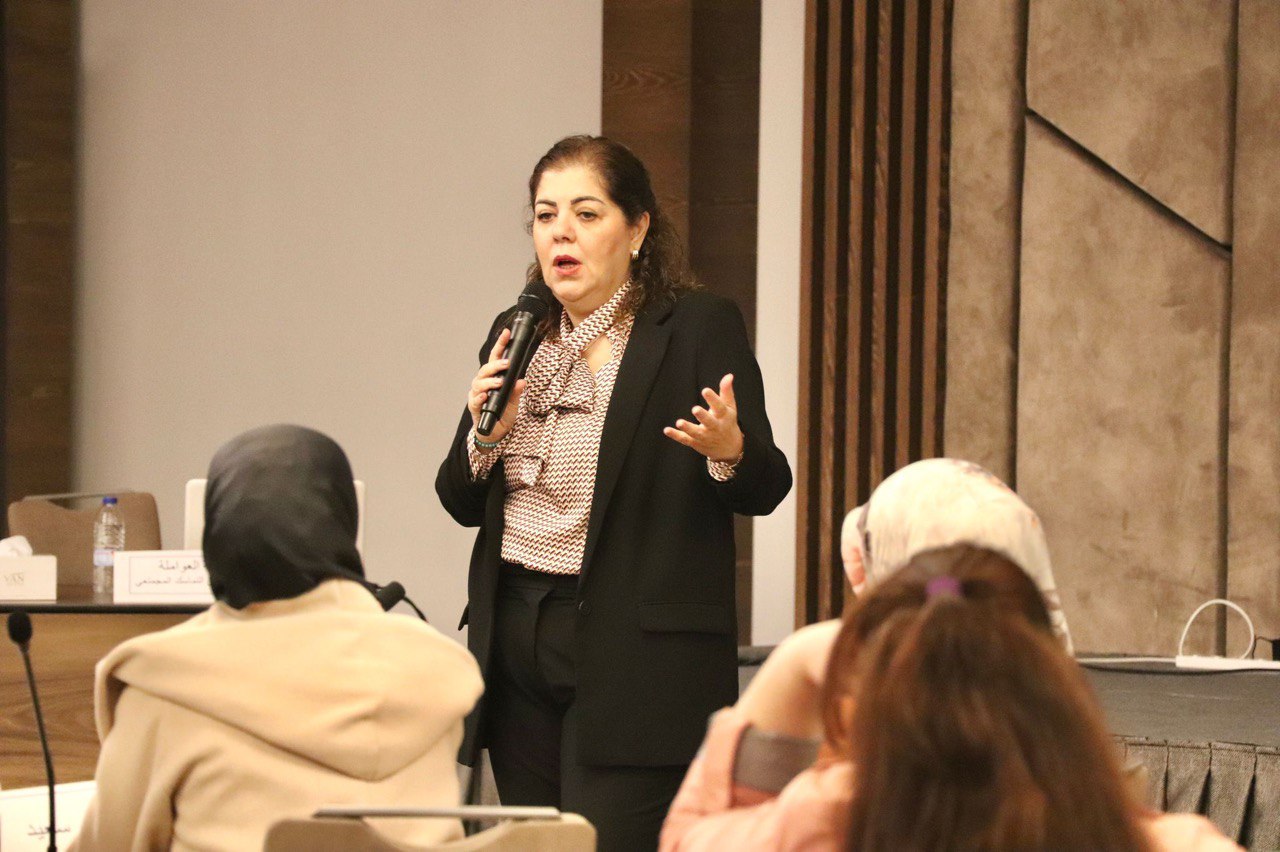
Nadia Alawamleh leads the Social Cohesion Programme at UNDP Iraq.
Conflict-affected countries usually spend two to three times more on defense than on health. How can women’s participation in MHPSS and peacebuilding redefine how we think about security?
For Stacey Schamber, MHPSS programming can facilitate reconciliation and reintegration from conflict - and women have a key role both in receiving and providing it. ‘Women’s unique experiences during and after conflict informs their perspective. In many contexts, women peacebuilders’ integration of MHPSS in peacebuilding work better supported the deradicalization and rehabilitation of returnees from violent extremist groups’, she explains.
She also highlights that women’s peacebuilding organizations and groups generally have a much broader understanding of security than traditional actors: ‘they increasingly address broader aspects of security such as political, economic, physical, psychological, and digital security.’
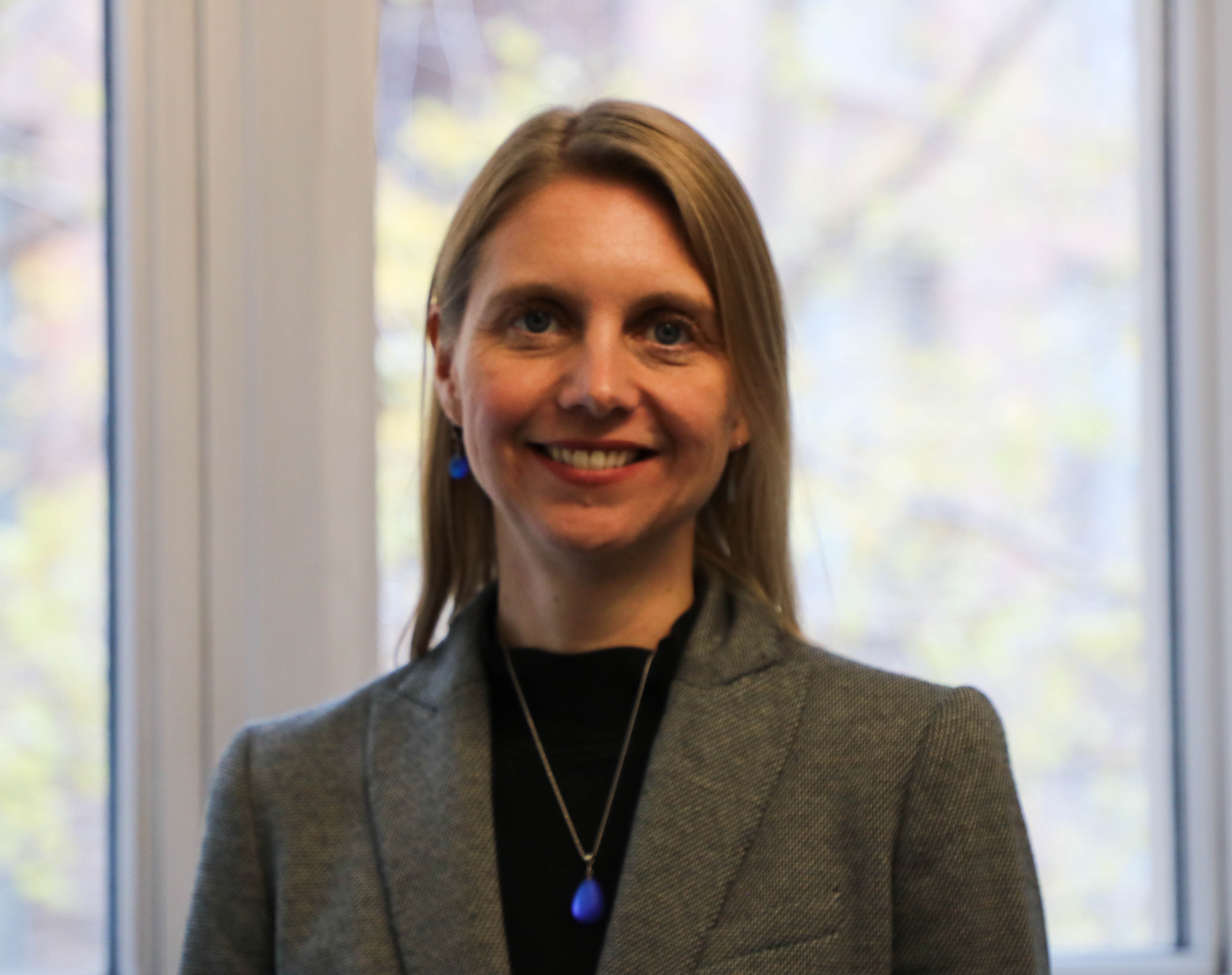
Stacey Schamber is a Clinical Social Worker and Senior Programme Officer with the International Civil Society Action Network (ICAN).
For Ms. Schamber, this holistic approach acknowledges the diverse experiences of women from all backgrounds. As a result, women’s inclusion in MHPSS and peacebuilding programming can better respond to emerging needs.
Nadia Alawamleh highlighted the role of women in mentoring and influencing entire communities: 'women make up half of Iraq’s population, and mothers often being family matriarchs, they are key influencers for the next generations.’
Improving women’s mental health is directly linked to improving the entire community’s health and cohesion: ‘We know that marginalized individuals are more likely to resort to violent extremism.’ She added: ‘A large part of UNDP’s work on reintegration in Iraq revolves around reducing the stigma associated with returning families previously associated with violent actors, and address shared grievances and pain.’
1 in 3 women has experienced intimate partner violence or non-partner sexual violence in their lifetimes - that is 736 million women worldwide. These numbers increase in times of conflict and worsen with economic dependence. How can MHPSS be combined with other types of support to have a lasting impact on women’s lives?
Stacey Schamber highlighted the consensus among practitioners on combining MHPSS with other types of interventions. She explains: ‘most women-led peacebuilding organizations recognize the importance of integrating livelihood and skills training with MHPSS to support survivors of sexual and gender-based violence.’
For example, in Uganda, the Kitgum Women’s Peace Initiative (KIWEPI) provides holistic support, including vocational training, life, parenting skills, legal services, and MHPSS for young girls abducted by the Lord’s Resistance Army. ‘The use of arts such as music and dance also helped their recovery process and helped them feel comfortable with sharing their experiences. The skills they learned, in addition to MHPSS, facilitated their reintegration into local communities.’
For Nadia Alawamleh, financial independence is the key factor that allows women to have full control over their life.
Ms. Alawamleh explains: ‘Mental health and socio-economic factors are very much interconnected. Not being able to provide for one’s family can trigger a lot of anxiety and lead someone to make desperate decisions such as aligning with violent extremist groups.’ In Iraq, UNDP’s approach to community reintegration combines MHPSS and livelihoods training with grants for the small businesses and start-ups of women returnees.
Globally, women represent the majority of the mental health workforce. In a crisis, this means that women providers of MHPSS are disproportionately exposed to direct violence and people’s narratives of pain, distress, and to human rights violations. How to best support them?
Stacey Schamber explains that organizations can support their staff by developing well-being policies, offering MHPSS services to practitioners, and organising retreats to prevent secondary trauma. It is also critical for local women-led organizations to receive flexible funding, which allows them to respond quickly to crises, provide MHPSS, and ensure institutional support for their staff.
She highlights the “She Builds Peace” campaign, launched in 2020 by ICAN and the Women’s Alliance for Security Leadership (WASL), which provides concrete recommendations on strengthening the recognition, protection, funding, and well-being of women-led peacebuilding organizations.
For Nadia Alawamleh, supporting frontline providers of MHPSS services must be a non-negotiable component of any recovery programming: ‘mental health issues can affect everyone, regardless of their background. To help others, we must help ourselves first.’
Ms. Alawamleh refers to UNDP’s Guidance Note on Integrating MHPSS into Peacebuilding. She elaborates: ‘at UNDP, we create safe spaces for our staff and implementing partners and provide resources on stress management. Staff need to know where to find support and be provided with the adequate tools to manage negative feelings before they become overpowering.’
For information on UNDP’s work on MHPSS in peacebuilding, please contact Nika Saeedi, UNDP global focal point on MHPSS and Team Leader, Prevention of Violent Extremism at nika.saeedi@undp.org.

 Locations
Locations


